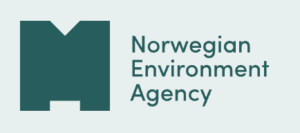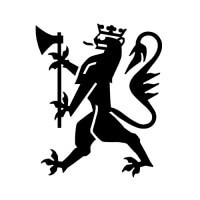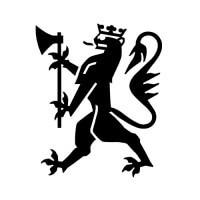Norway’s National CE Strategy
Oslo, Oslo, Norway
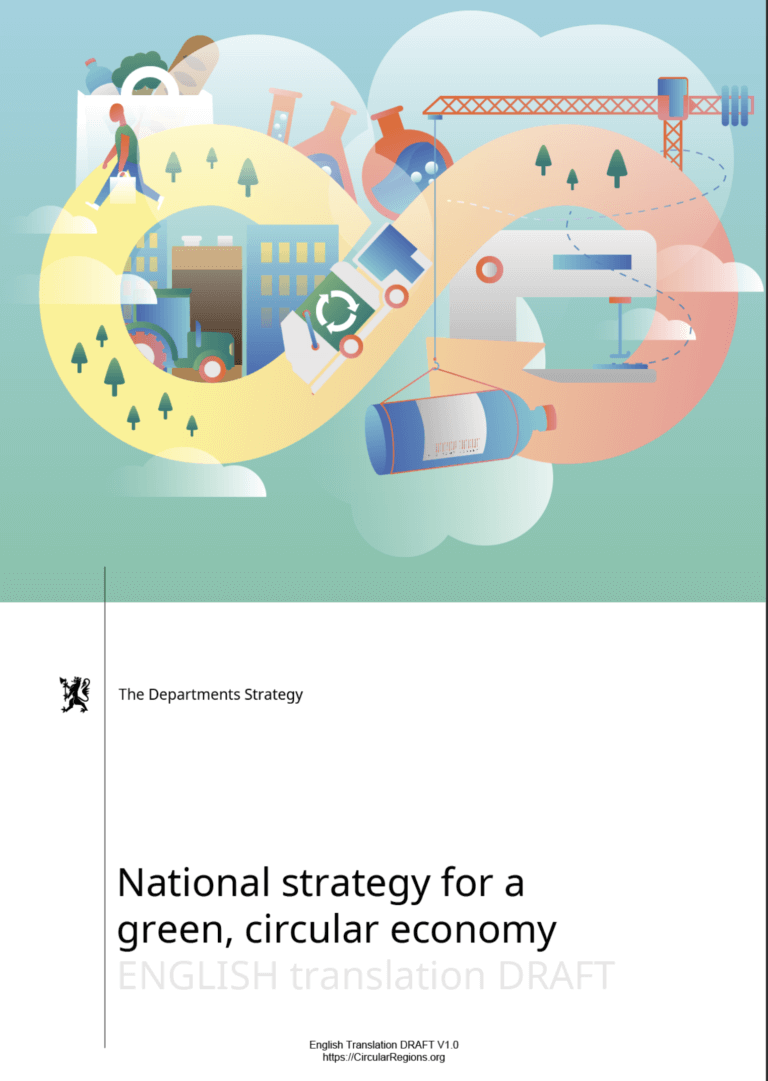
BUSINESS MODEL
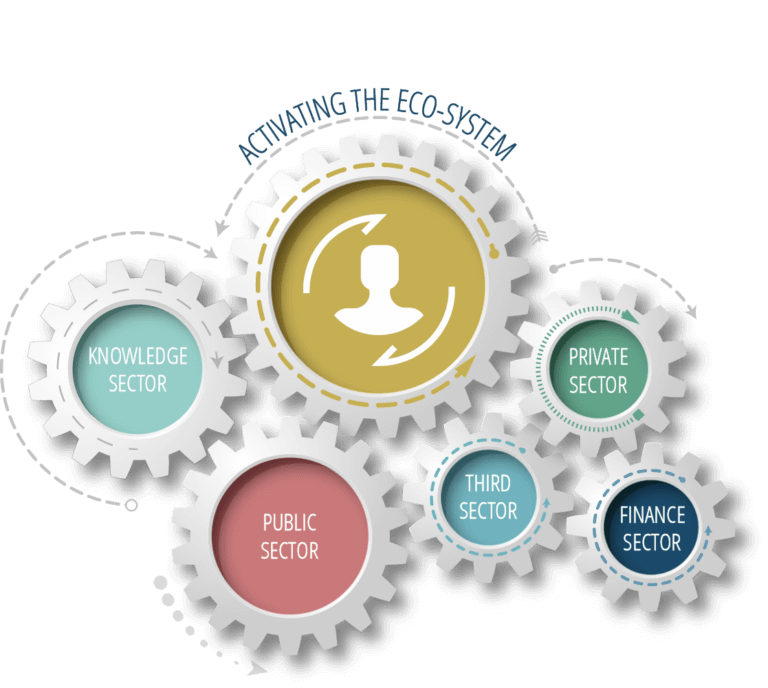
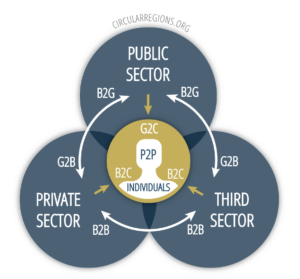
FACET & LEVEL
-
Macro - Cities, Regions, Nations
Cities, Regions, Nations
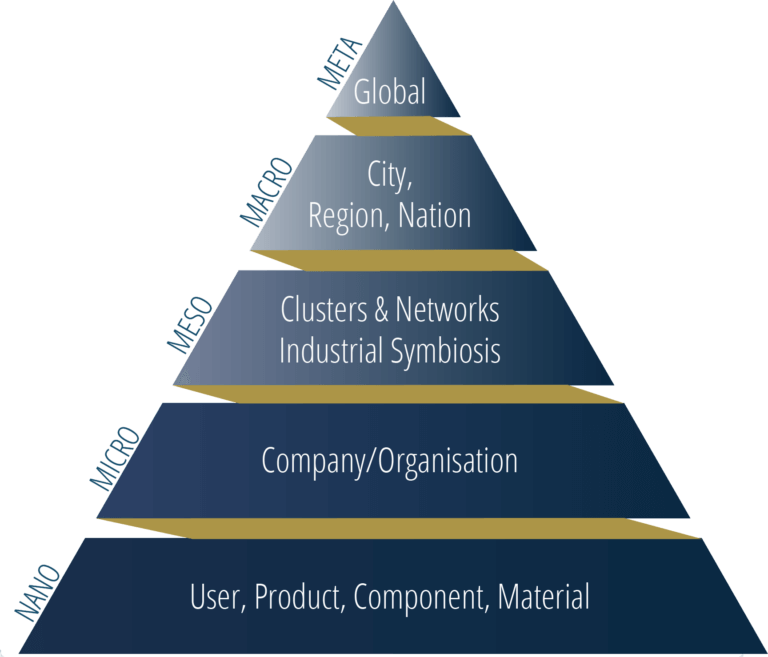
SOCIETAL READINESS LEVEL & POTENTIAL
FUTURE POTENTIAL
SOCIETAL READINESS LEVEL
CIRCULAR CYCLE PHASE
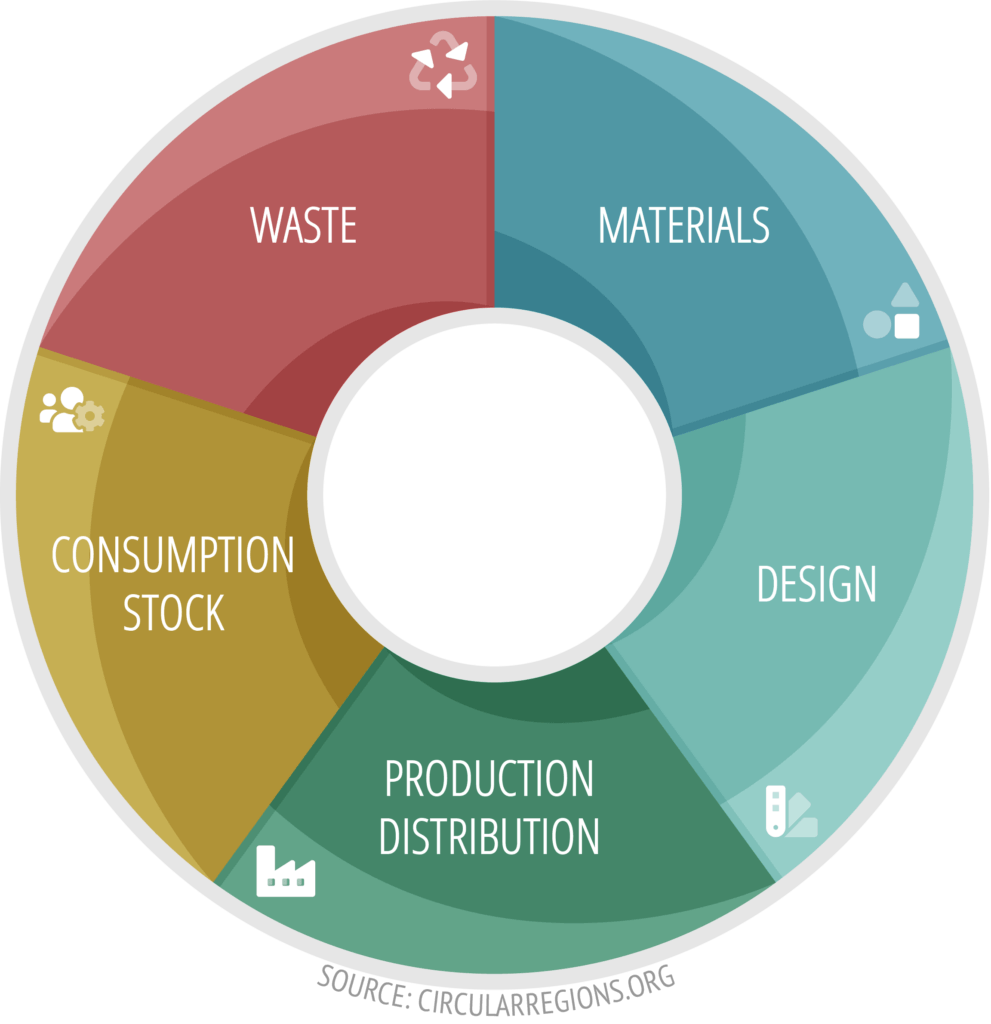
STATUS & TIMELINE
| Milestone title | Date | Content |
|---|---|---|
| Release date | 06/2021 | Launch of the Norwegian National Strategy |
DESCRIPTION
It is the ambition of the government that Norway will be a pioneer in the development of a green, circular economy that utilizes resources better. Norway will be a pioneer through active further development of policy and instruments both nationally and in cooperation with the EU, for framework conditions that ensure the basis for value creation and green competitiveness in Norway.
The strategy lays the foundation for the government’s work to exploit potential for value creation in Norwegian business and industry on the basis of a more circular economy, with concrete measures in the areas identified as having the greatest circular economic and green competitiveness potential in Norway, namely the bioeconomy, process industry, building and construction and trade and the service industries.
The EU has been a strong driver for the transition to a more circular economy since the first action plan in 2015. The second action plan for the circular economy from 2020 is regarded as one of the most important areas to be delivered under the EU’s Green Deal. on climate neutrality by 2050 and a society where economic growth can take place without increasing the use of resources.
The EU action plan for the circular economy includes pioneering legislative measures for more sustainable products, higher ambitions for utilization of waste resources and the continuation of high standards for a non-toxic environment. The strategy from the government places Norwegian politics in this picture and explains how it becomes important in national politics, for Norwegian positions in EU co-operation and for strengthened Norwegian green competitiveness. The a Government has formulated a vision and overarching goals that will reflect that we do not count the circular economy as a goal in itself, but as a contribution to value creation and sustainability under agreed goals for climate and environmental policy and in Norway’s work with the UN’s sustainability goals.
It is comprised of 5 parts laying the foundation that the Norwegian Government will:
- Use the whole country for circular economy based on local and regional resources and business structures
- Support the opportunities Norwegian industry has for strengthened green competitiveness on the basis of a circular economy
- Facilitate a development where circular solutions in the bio-economy and increased use of renewable resources to replace non-renewables contribute as much as possible to achieving climate and environmental goals and to sustainable value creation.
- Through legislation and targeted efforts, more circular buildings are built and operated. The state as property manager takes a special responsibility
- Take care of Norwegian interests in the EU’s work with a strengthened product framework for more sustainable products
- Support high climate and environmental standards for more sustainable products and value chains under the EU circular economy action plan
- Work for strengthened Norwegian green competitiveness in Norway based on the possibilities in a circular economy
- Strengthen the role of the waste sector as the one that takes care of material resources, and is a supplier of secondary raw materials for circular cycles
- Work for non-toxic circular cycles through a continuous ambitious chemical policy in collaboration with the EU
- Exploit the potential of digitalisation to access information on product characteristics and markets for secondary raw materials for all market participants
- Invest in research-based knowledge and innovation. The instrument apparatus will further develop circular economy as a cross-cutting focus area
- Ensure a holistic knowledge base for how economic instruments can contribute to better resource utilization and circular economy
- Promote sustainable public consumption and green innovation through public procurement
- Give consumers stronger rights and opportunities for circular economy consumption. The Government works, among other things, to strengthen access to products that have a longer lifespan and other sustainability properties, and for better information. The Government strengthens the work on Eco-labelling Norway’s work with circular economy.
Ein meir ressurseffektiv og sirkulær okonomi er naudsynt dersom vi skal nã dei klima, miljo- og berekraftsmala vi har forplikta oss til. Vi bruker naturressursane váre i eit langt storre tempo enn det naturen sjolv klarer a produsere.
I Granavolden-plattforma har regjeringa sett seg som mäl at Noreg skal vere eit foregangsland for ein gron, sirkulæer okonomi som utnyttar ressursane betre. Gjennom denne strategien vise regjeringa korleis Noreg skal gripe moglegheitene i det grone, sirkulare skiftet.
EUs ambisjonar for ein sirkulær okonomi i Europa er hoge og vil fä stor betydning for utviklinga av sirkulær okonomi i Noreg dg i ara som kjem. Handlingsplanen for sirkulær okonomi fra 2020 er ein av dei viktigaste leveransane til den grone given og mála om klimanoytralitet, nullutslepp for forureining, aka ressurseffektivitet, a bli mindre avhengig av import 0g om styrkt konkurransekraft i Europa.
Arbeidslivet vart mã vere gront, sirkulært, smart og nyskapande for ã vere konkurransedyktig og er ogsä a den grunn tent med hoge EU-standardar. Dei kommande ra vil Europas grone giv vere eit a dei viktigaste prosjekta for EU. Regjeringa vil vere ein aktiv medspelar i denne prosessen i Europa 0g samarbeide med EU om rammevilkär som fremjar sirkularitet bade i EU 0g Noreg. Strategien viser korleis regjeringa vil päverke og gjennomfore skjerpa standardar.
Den består av 5 deler som legger grunnlaget for at den norske regjeringen vil:
- Bruke hele landet til sirkulær økonomi basert på lokale og regionale ressurser og næringsstrukturer
- Støtte mulighetene norsk industri har for styrket grønn konkurransekraft på grunnlag av en sirkulær økonomi
- Legge til rette for en utvikling der sirkulære løsninger i bioøkonomien og økt bruk av fornybare ressurser for å erstatte ikke-fornybare bidrar mest mulig til å nå klima- og miljømål og til bærekraftig verdiskaping.
- Gjennom lovverk og målrettet innsats bygges og driftes flere sirkulære bygg. Staten som eiendomsforvalter tar et særlig ansvar
- Ivareta norske interesser i EUs arbeid med et styrket produktrammeverk for mer bærekraftige produkter
- Støtte høye klima- og miljøstandarder for mer bærekraftige produkter og verdikjeder under EUs handlingsplan for sirkulær økonomi
- Arbeide for styrket norsk grønn konkurransekraft i Norge med utgangspunkt i mulighetene i en sirkulær økonomi
- Styrke avfallssektorens rolle som den som tar vare på materialressurser, og er leverandør av sekundære råvarer til sirkulære kretsløp
- Arbeid for giftfrie sirkulære kretsløp gjennom en kontinuerlig ambisiøs kjemikaliepolitikk i samarbeid med EU
- Utnytt potensialet til digitalisering for å få tilgang til informasjon om produktegenskaper og markeder for sekundære råvarer for alle markedsdeltakere
- Invester i forskningsbasert kunnskap og innovasjon.
- Instrumentapparatet skal videreutvikle sirkulær økonomi som et tverrgående satsingsområde
- Sikre et helhetlig kunnskapsgrunnlag for hvordan økonomiske virkemidler kan bidra til bedre ressursutnyttelse og sirkulær økonomi
- Fremme bærekraftig offentlig forbruk og grønn innovasjon gjennom offentlige anskaffelser
- Gi forbrukerne sterkere rettigheter og muligheter for sirkulærøkonomisk forbruk. Regjeringen arbeider blant annet for å styrke tilgangen til produkter som har lengre levetid og andre bærekraftige egenskaper, og for bedre informasjon. Regjeringen styrker arbeidet med Miljømerking Norges arbeid med sirkulær økonomi.
IMPACT
BARRIERS
ENABLERS
MATERIALS & CERTIFICATIONS
| material input | material category input |
|---|---|
| material output | material category output |
|---|---|
TECHNOLOGY & LICENSE
DATA & DATA-SHARING
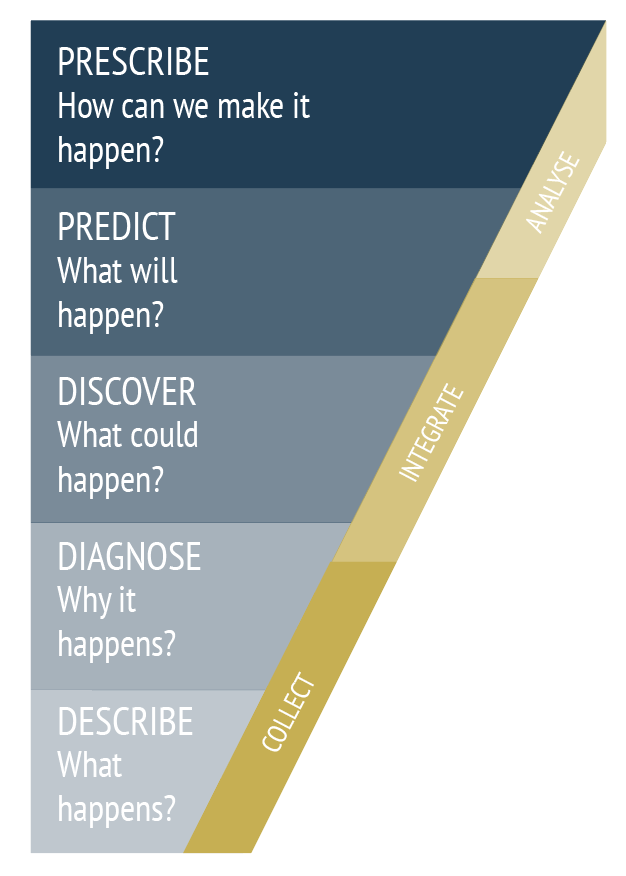
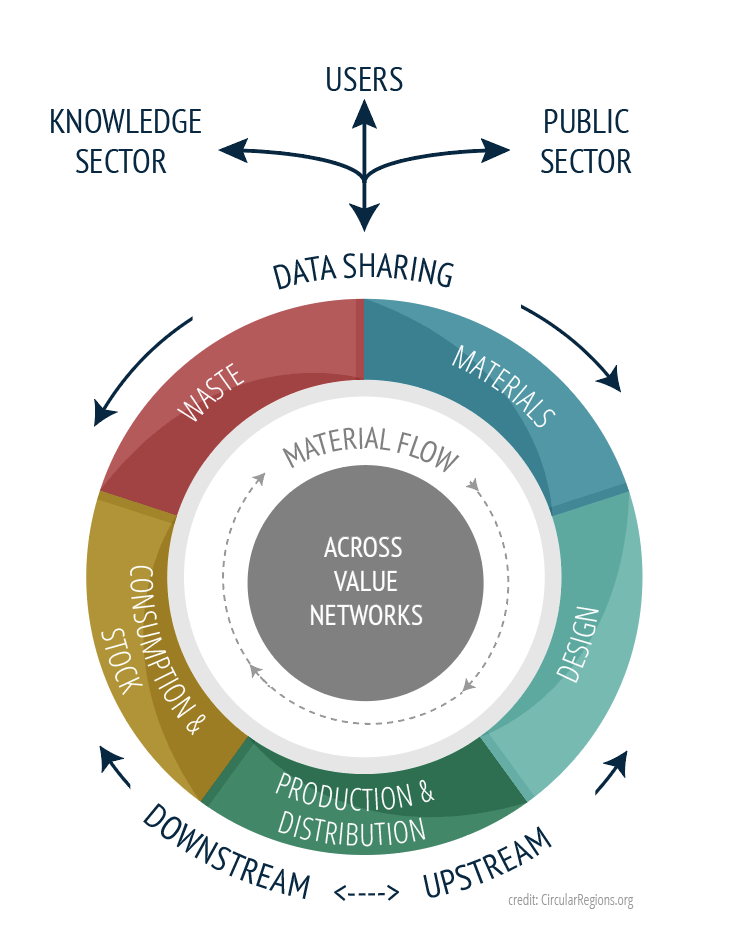
| data related to | can be used to | Unit of measure | Data-sharing |
|---|---|---|---|
Circular Case Studies by Circular Regions is licensed under CC BY-NC-ND 4.0

